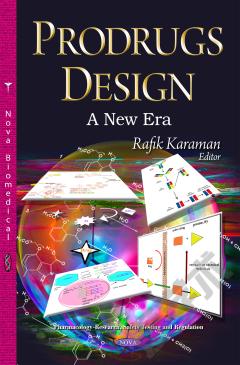Prodrugs Design – A New Era
The prodrug approach is a promising and well established strategy for the development of new entities that possess superior efficacy, selectivity and reduced toxicity. Hence an optimized therapeutic outcome can be accomplished using this approach. Prodrug design is becoming more elaborate in the development of efficient and selective drug delivery systems. The targeted prodrug approach, in combination with gene delivery and controlled expression of enzymes and carrier proteins, is a promising strategy for precise and efficient drug delivery and enhancement of the therapeutic effect. This book describes in details all prodrug approaches and examples of prodrugs that succeeded to enter the market. There are two major prodrug design approaches that are considered as widely used among all other approaches: the targeted drug design approach by which prodrugs can be designed to target specific enzymes or carriers by considering enzyme-substrate specificity or carrier-substrate specificity in order to overcome various undesirable drug properties. Examples for such approach is the antibody-directed enzyme prodrug therapy (ADEPT), gene-directed enzyme prodrug therapy (GDEPT), virus-directed enzyme prodrug therapy (VDEPT) and GDEPT. In addition, this book describes in details a novel prodrug chemical approach which is based on intramolecular reactions that were utilized to understand how enzymes exert their high catalysis. The information gained from the experimental and theoretical calculations on these enzyme models was used to design efficient chemical moieties to be utilized as prodrug linkers with the potential to release the corresponding parent drugs in a slow or fast release manner. Several prodrugs for commonly used drugs suffer from low bioavailability or/and bitter sensation were designed using quantum mechanics methods (DFT and ab initio) and recently a large number among these prodrugs were synthesized. Examples of such prodrugs are presented in the different chapters of the book.
{{comment.content}}








 京公网安备 11010802027623号
京公网安备 11010802027623号